The only woman passenger in the entire coach was furious and scared. Maybe she was furious because she was scared. As she huffed her way to the next, more inhabited, coach on the Patna Rajdhani, she kept taking photographs and venting.
“I am going to send it to Prabhu right away. He should see the scam for himself.” She said clicking.
One of the photographs, I think, has me in it. I am looking part dejected – she was an okay-looking sort and I was going to miss her – and part taken aback – had she given me some kind of notification I could have struck the part she wanted what with my headscarf, metal kada, and all. Instead I am looking like how I would have when my first girlfriend in school in Nigeria told me she was leaving me – because she knew that I was all ‘heart-eyed’ for another – for my best friend Humphrey. Emojis appeared some four decades later; I think she grew up to be Calypso.
“You know, till yesterday, I was number 15 on the waiting list. So, I made a call to Prabhu and his office allotted me a seat from the minister quota.” She said while taking photographs of folded blankets above my head. I was staring at her nonplussed.
“You know Prabhu? Suresh Prabhu, our railway minister.” She explained without pausing her proof collection of malpractice. “Now look at this coach, its empty. Something is going on. I hope Prabhu will find out.”
“Prabhu* sees everything,” I quipped, taking after a pre-budget remark by the jocular minister which made him a media favourite some time ago.
It was lost on her. The catering staff who stood behind her, helping her with her luggage, scoffed.
Money Raj
Maniraj had been with railway catering for nine years now, most of it on the Patna Rajdhani 12310. He told me later that he had seen many passengers palpitate prior to this trip – leaving Delhi in the evening and reaching Bihar capital Patna early next morning, after cutting through some of the remotest, baddest areas of traversable India in the thick of night.
Only three months ago, in April this year, the train was looted by armed robbers who decamped with lakhs of rupee worth in watches, mobile phones, and laptops. I knew about the incident and shrewdly wore my cheapest watch and left my laptop at home; my mobile phone, if stolen, had to go with my right index finger to be any good. (I hoped so. At least for the sake of all the amateur videos on it.) I pointed out to Maniraj that newspapers reported some from the railway staff could be complicit in the incident, specifically catering.
We were having a post-prandial conversation. I was on to my second ice-cream after stuffing myself with paneer – two portions – and chapatis. My rice and the chalk-like dahi kadhi were left untouched. They had to earn their tips, I was keen. Since the train reached its destination during the wee hours, they were making the baksheesh rounds at night. A female voice announced over the PA that, besides not using the loo at stations, the passengers were also to refrain from tipping the staff. She also gave out a telephone number to call up and report, in case. Maniraj nodded to the voice coming from above.
“This is the only law-breaking we do and that too to supplement our meagre incomes.” After putting in close to a decade, the highest Maniraj and his ilk drew was six thousand rupees.
The train would also travel up to a maximum speed of 140 kmph, the voice informed. Speed was a deterrent to attack, I knew. And went to sleep on that happy thought.
Sometime during the middle of the night I woke up in a stationary train. Which station, I asked somebody who passed by. I didn’t get any reply. I looked out the window, it was dark outside. I reached beneath my pillow for the comforting contours of my pocket Swiss knife.
Lathi, knife and chilli powder
Exactly a decade ago, in 2007, when I shifted my base to the north, following love and opportunity, one of my earliest films were shot in Bihar. After reaching Patna by air from Delhi, the rest of our journey was by road: to Purnia (300 km from Patna) and on to Nalanda (270 km from Purnia). Each leg of the journey took a whole day and including work we were on the road for more than a week. I took turns on the Mahindra Bolero with the driver.
I remember vividly the first time he handed me the wheel, the introductions: a lathi was hooked to the roof and in order to pull it out, I had to yank it towards me. But I had to make sure my own head – or that of anyone else inside the vehicle – didn’t come in the way. There was a knife beneath the seat; the rusted blade was fine. And if none of these worked or probably if the dacoits were too many in number, it was the chilli powder in a pouch kept in the door accessory pocket. Well, if they didn’t insist on seeing my hands in the air as I exited, I could grab that pouch on my way out. No biggie. But it was good to be surrounded by all these, these fortifications. Like the Smiths would have felt each time they broke into an argument.
2007 meant two years since Nitish Kumar officially slayed the jungle king Lalu Yadav and ended his jungle raj. But peace and beginning of prosperity were limited to Patna and surrounds. The road to Purnia was an endless succession of craters stitched together by tar; you could drive through the potholes, even change gears while at it. We drove through an overflowing Kosi River with additional people standing on the footboard of the vehicle so it didn’t drift away as I drove through the powerful currents.
(A bridge over this temperamental river was opened only in 2013, after an engineer with the project was kidnapped and killed 10 years earlier.)
Pakadua shaadis, pasmanda votes and peace
Over the years, Lalu turned out regularly in pinafores, cuddling cattle and protesting vehemently charges that his brothers-in-law held the appalto to the kidnapping and ransom business in the state. A kidnapped surgeon was killed which prompted an exodus of sorts of those with a thriving professional practice. Grooms were forcibly kidnapped from ceremonies and forced to marry other brides, a regular nightmare of urban weddings which came to be called ‘pakadua shaadi’ or ‘snatch and marry’. The pasmandas, who were Dalits converted to Islam, who formed a big chunk of the vote bank, were given a free run. Those who bought new cars would be lucky if they lived to tell the tale of their carjack. When his state fortunes sagged, Lalu was made the minister of railways by the UPA, a portfolio he held from 2004 to 2009.
Like that one century after an unending spell of run-drought catapults a batsman back to the top rung of media-love, the rail wheel factory that opened in 2008 absolved Lalu of all his sins. Or so it seemed on my recent trip. I was heading to Gopalganj where a close friend and associate’s father had passed away. A fairly well-maintained road cuts through a picturesque landscape of open fields and water bodies to the factory at Bela, 70 km from Patna. While not much sign of activity could be spotted, the driver of the Bolero I was now driving assured me that it was a boon to the locals.
“Hundreds of locals are working here all because of Lalu ji,” he told me while his little finger went on a ventromedial pursuit. My grip on the wheel loosened.
After Bela in Chapra, it was a bumpy ride till Mohammadpur, reminiscent of my earlier drive. But from Mohammadpur all the way to Gopalganj, it was a new four-lane highway.
“There is progress as well as peace under Nitish,” I commented as I floored the Bolero.
“That reminds me,” he said, “you have to give the wheel back before Gopalganj.”
Less than a week ago, a BJP leader had been killed in Gopalganj, despite being secured by four armed guards round the clock. The situation on the ground was a little touchy, there was no need to attract unwanted attention to a stranger driving into town.
Now. Now we were talking.
*Suresh Prabhu, Indian Railways minister, began his railway budget presentation in 2015 with ‘Hey Prabhu, how to increase the capacity in high-density section.’ Prabhu means god.








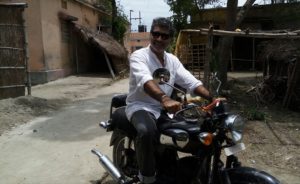


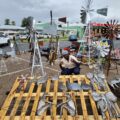
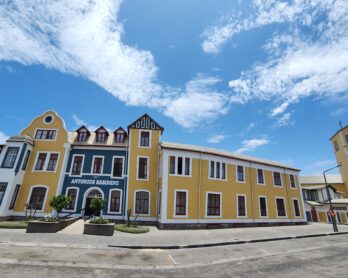
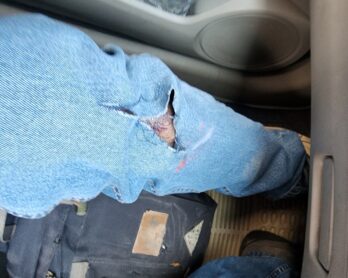
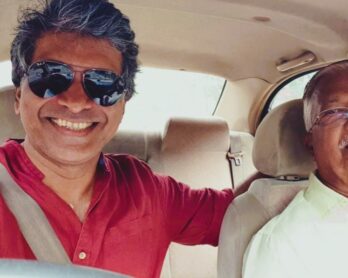

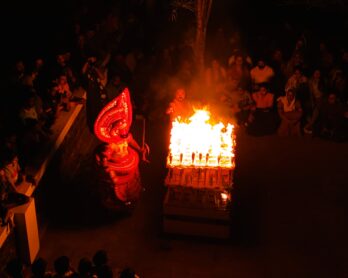

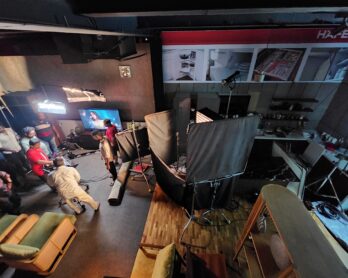

With all these political mishaps and bureaucratic silence, is India shining still? Can we get our beautiful olden days back? A travel lover can surely expose the beautiful side of India to the emotional fools who fight for nothing.
‘India shining’ was an advertising slogan. Travel is a way of retrieving what we have lost, seemingly at least. There is no point in showing those fools the beautiful country; just hope they don’t pillage and plunder the countryside…as they have the city.